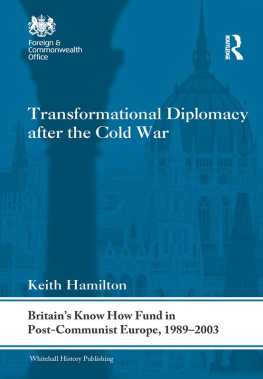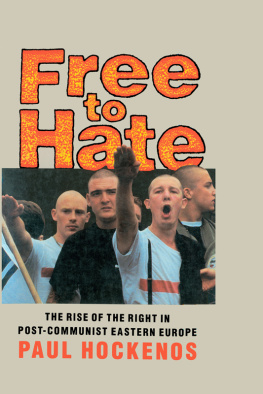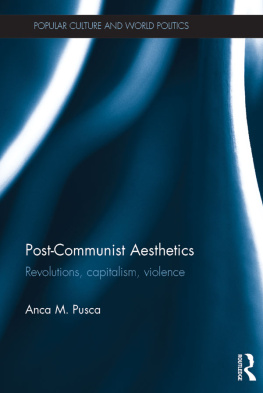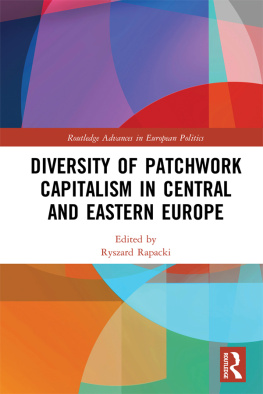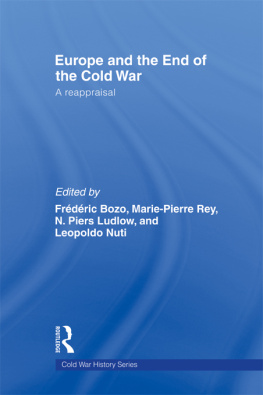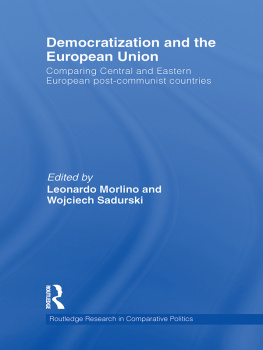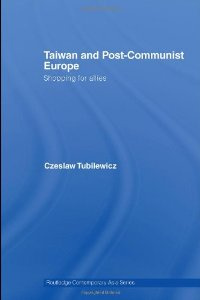Transformational Diplomacy after the Cold War
This book examines the Know How Fund (KHF), Britain's bilateral technical assistance programme in post-communist central and eastern Europe, devised in response to the end of the Cold War.
The Know How Fund was the technical assistance programme which Margaret Thatcher's government launched in the spring of 1989 to encourage Poland's transition from communism to democracy and free-market capitalism. It was subsequently extended to other countries of central and eastern Europe and might be considered a novel experiment in what the US secretary of state, Condoleezza Rice, would later termtransformational diplomacy.
Drawing upon still-closed records of the Cabinet Office, the Department for International Development (DFID) and the Foreign and Commonwealth Office, this book explores the political origins of the KHF. In particular, the author examines its influence upon the transitional process in the lands of the former Soviet bloc; its part in attenuating the potentially destabilising effects of revolutionary change in Europe; the interdepartment al cooperation and rivalry to which its administration gave rise in Whitehall; and the links forged between officials and the worlds of business, finance and academe in project design and implementation. The volume offers new insights into Britain's reactions to the collapse of communism in central Europe and the Soviet Union; the role of aid in the making and conduct of British foreign policy; and the significance of New Labour's establishment of DFID as a separate government department.
This book will be of much interest to students of British Foreign Policy, Diplomacy Studies, European history, Post-Communist Transitions and IR in general.
Keith Hamilton is a consultant historian in the Foreign and Commonwealth Office, where he was formerly a senior editor of the series Documents on British Policy Overseas. His most recent publications include (co-edited with Patrick Salmon) Slavery, Diplomacy and Empire: Britain and the Suppression of the Slave Trade, 18071975 (2009); and (co-authored with Richard Langhorne) The Practice of Diplomacy: Its Evolution, Theory and Administration (2011).
WHITEHALL HISTORIES: FOREIGN AND
COMMONWEALTH OFFICE PUBLICATIONS
Series Editors: Patrick Salmon and Richard Smith
ISSN: 14712083
FCO historians are responsible for overseeing the publication of FCO Internal Histories.
FCO Internal Histories are occasional studies by former or serving officials, commissioned to provide background information for members of the FCO, to point out possible lessons for the future and evaluate how well objectives were met. The majority concentrated upon international developments and negotiations in which the UK has been directly involved. They were initially intended for use within the FCO, but some of the more substantial among them, studies that offer fresh insights into British diplomacy, are now being declassified for publication.
Published volumes:
Britain's Entry into the European Community: Report on the Negotiations of 19701972 by Sir Con O'Neill
Transformational Diplomacy after the Cold War: Britain's Know How Fund in Post-Communist Europe, 19892003 by Keith Hamilton
Transformational Diplomacy after the Cold War
Britain's Know How Fund in Post-Communist Europe, 19892003
Keith Hamilton
First published 2013
by Routledge
2 Park Square, Milton Park, Abingdon, Oxon, OX14 4RN
Simultaneously published in the USA and Canada
by Routledge
711 Third Avenue, New York, NY 10017
Routledge is an imprint of the Taylor & Francis Group, an informa business
2013 Crown Copyright
The right of Keith Hamilton to be identified as author of this work has been asserted by him in accordance with sections 77 and 78 of the Copyright, Designs and Patents Act 1988.
All rights reserved. No part of this book may be reprinted or reproduced or utilised in any form or by any electronic, mechanical, or other means, now known or hereafter invented, including photocopying and recording, or in any information storage or retrieval system, without permission in writing from the publishers.
Trademark notice: Product or corporate names may be trademarks or registered trademarks, and are used only for identification and explanation without intent to infringe.
British Library Cataloguing in Publication Data
A catalogue record for this book is available from the British Library
Library of Congress Cataloging-in-Publication Data
A catalog record has been requested for this book
ISBN13: 978-0-415-69203-8 (hbk)
ISBN13: 978-0-203-38158-8 (ebk)
Typeset in Times New Roman by
Keystroke, Station Road, Codsall, Wolverhampton
Contents
This book is a much revised and considerably expanded version of a Foreign and Commonwealth Office (FCO) internal history, entitled Know-How Diplomacy: a brief history of the Know-How Funds, 19891993. The latter was commissioned in 1995 by David Coates, who as head of the Joint Assistance Unit (Central Europe) was responsible for administering Britain's bilateral technical assistance programme, the Know How Fund (KHF), in what had until recently been known to most British diplomats as eastern Europe. Written largely on the basis of departmental records, many of which were awaiting transfer to the Office's main archive and some of which had yet to be registered, the internal history dealt in detail with the establishment of the Fund, its early administration, and its extension to the constituent republics of the former Soviet Union. In April 1997 a brief summary of the completed study was published by the FCO's Historians under the title The Know How Fund: the early years. Since then, and more especially since 2009, when the twentieth anniversary of the fall of the Berlin Wall stimulated renewed interest in the West's response to the collapse of communism in central Europe, there have been several requests for the publication of the full history. It was with this in mind and with the encouragement of Professor Patrick Salmon, the FCO's chief historian, that I resumed my research into the history of the Fund.
The passage of time has inevitably changed perspectives. And, if it remains difficult to assess the full significance of the Fund for the reform process in postcommunist Europe, it is easier to appreciate the strengths and weaknesses of individual programmes and projects. It is also now possible to trace the history of the KHF from its inception in the FCO's Eastern European Department, through to its transfer to the Department for International Development (DFID) and the eventual winding down of its activities in the early years of the twenty-first century. To this end I have written a new introductory chapter, seeking to place the Fund in its broad diplomatic context; revised the four chapters of the original internal history in order to provide more detail on both decision-making in Whitehall and project implementation abroad; and, drawing upon DFID as well as FCO records, added two new chapters and a conclusion covering the management of the Fund and its role in British diplomacy during the latter half of the 1990s.
These revisions have included changes in nomenclature. Up until 1992 it was customary in the FCO to apply the term eastern Europe to those countries other than the Soviet Union which through military and political alignment or ideological commitment formed, or had once formed, part of a communist bloc. However, with the break-up of the Soviet Union the FCO's Soviet Department was renamed the Eastern Department (the name of a department which a century earlier had dealt with relations with lands stretching from the Near and Middle East to central Asia), and the Eastern European Department became the Central European Department. Despite this administrative change, some British diplomats persisted in referring to Poland and its southern neighbours as eastern Europe, and with good reason countries such as Bulgaria and Romania were very often regarded as belonging geographically to south-eastern Europe. Nonetheless, for consistency's sake I have, when appropriate, inclined towards insertingcentral and before eastern in the chapters covering the years 198991.

